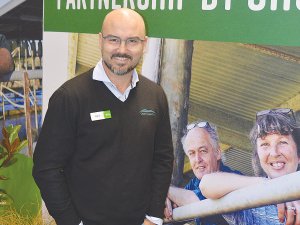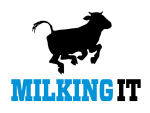Open Country is building its first butter plant at its Waharoa site in Waikato. The new plant will be commissioned around August next year.
The Waharoa plant, which celebrates its 20th anniversary this year, is also getting an upgrade to one of its dryers and whey processing capability. At Open Country's biggest site, Awarua in Southland, a new cheese plant is being built.
The investments give Open Country more optionality, says chief executive Mark de Lautour.
He says the new butter plant at Waharoa will be an excellent protein and fat balance for its milk.
"Depending on where the market is, we will decide where to put our fat - butter or AMF or even whole milk powder," he told Dairy News.
"If protein prices are up, we will produce more cheese, so it gives us that optimum mix."
The base butter plant will produce 20 to 25kg blocks of butter, with the option of doing smaller packs for the food service sector. However, de Lautour says Open Country has no plans to enter the branded or retail butter market.
"It will be a bulk butter plant and we're going to have equipment to do small packs, however we're not calling it retail and not going into branded products," he says.
"Also, the butter plant will give us the opportunity to look at all parts of the value chain, which is relevant considering the strategic changes that are being announced currently in the NZ dairy sector.
"While we are simply not consumer brand players, it is always prudent to have the capability in our company should the likes of Woolworths or PAK'n SAVE come to us with an opportunity."
Open Country's upgrade comes at a time when the national milk supply pool remains static and adding more stainless steel isn't seen by many as the right strategy. De Lautour points out that Open Country is making improvements to its existing plants.
While the new butter plant at Waharoa won't create the need for more milk, the dryer and whey capability upgrade mean it could indeed process more milk.
De Lautour says they are recruiting more milk suppliers and farmers are showing "strong interest".
He adds that the investments reflect the company's "immense faith" in the dairy industry.
"I know that the New Zealand dairy industry is the best in the world and that will prove out over time.
"When you talk about carbon efficiency, emissions and productivity, there are always things we can do better. But since being in this role, I've spent a lot of time with our farmers, and I know that they are doing a fantastic job.
"They are probably the most entrepreneurial and commercial in the country because every one of them made a conscious decision to join us. We have to repay that faith and make sure we are also committing to them and their region with world class facilities."
Open Country's board signed off the new cheese plant project at Awarua eight months ago, with global dairy prices under pressure.
De Lautour says the company believes in investing when times are tough.
"We are very lucky, as a company, because we can invest now. It's a massive commitment."
Open Country, part of the Talley's Group, has four sites - in Waharoa and Horotiu in the Waikato, Whanganui and Awarua in Southland.


















